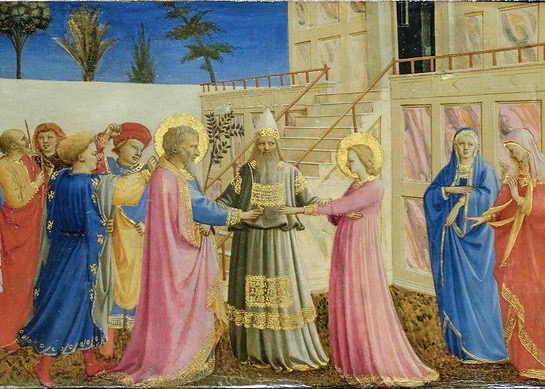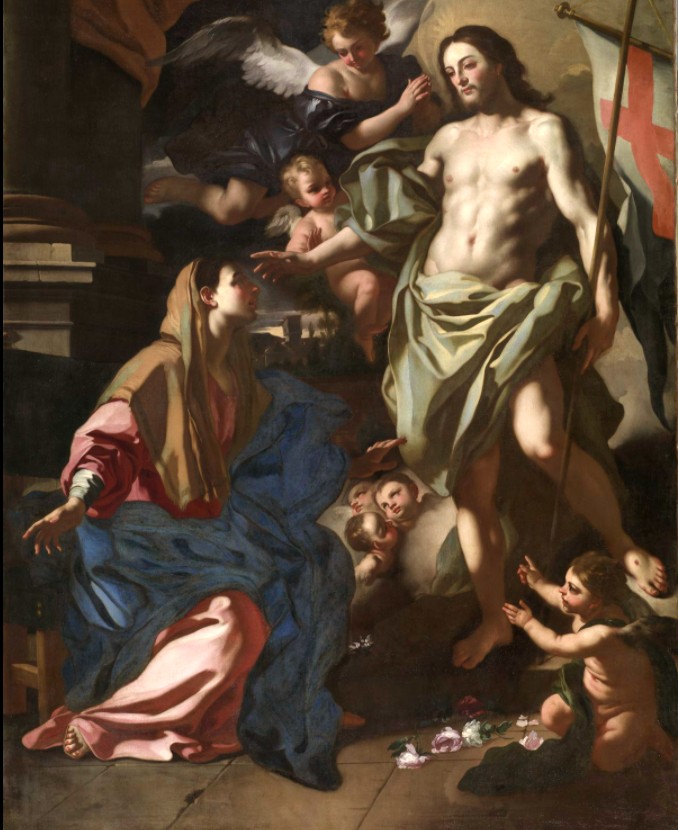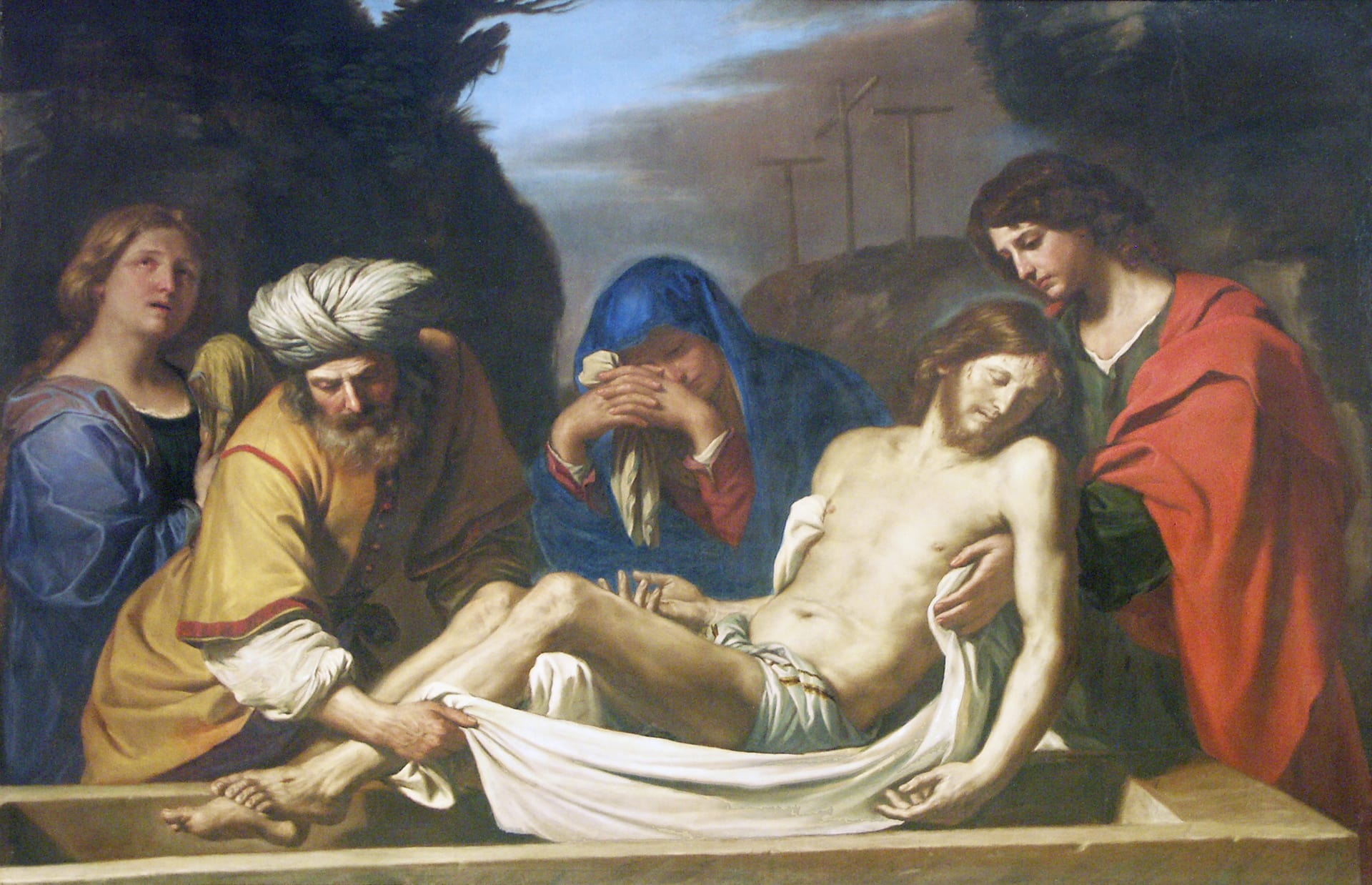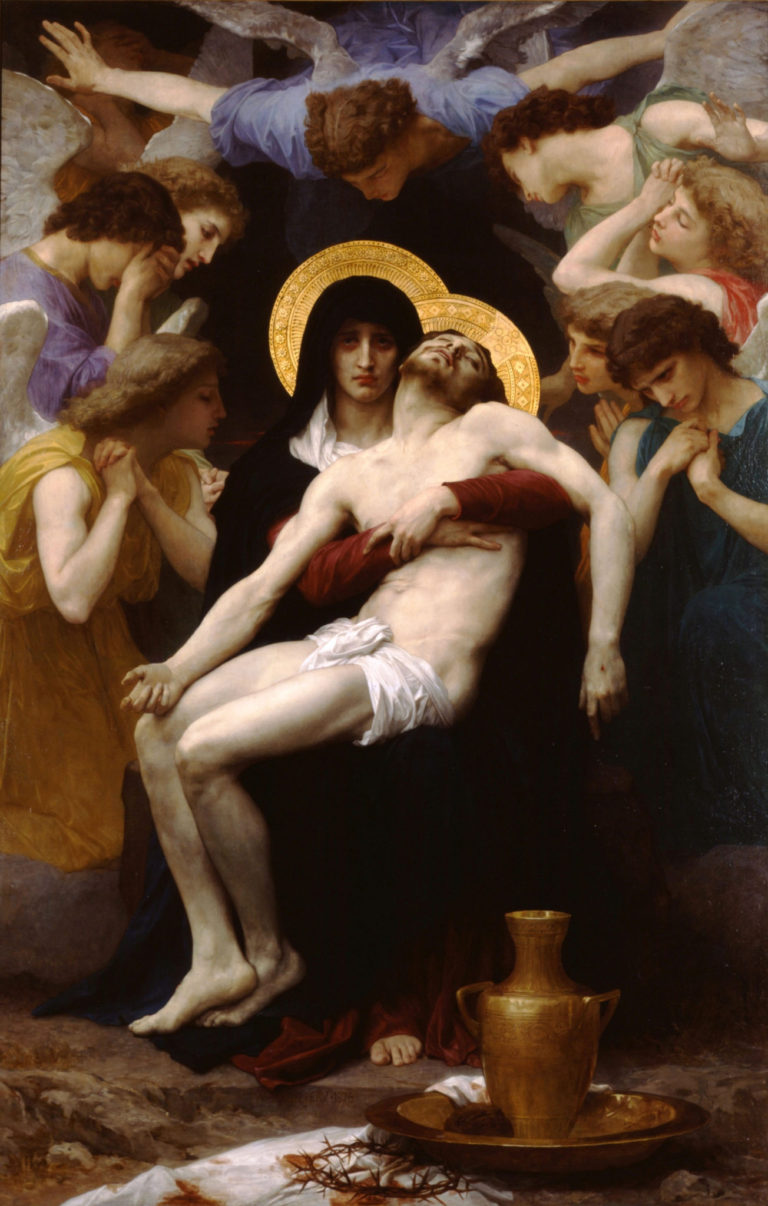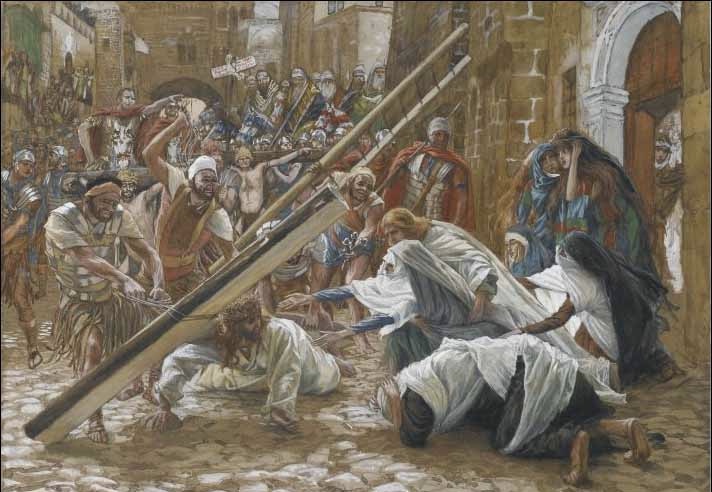The Two Become One
This past year Covid has really taken its toll on many marriages. Without warning, couples were placed in 24/7 togetherness that usually comes only in post-retirement after many years of marriage and the wisdom of many years of experience. This has left many young couples without the wisdom of experience to guide them. Remembering first and foremost that Catholic marriage is a sacrament and that Christ is present in all Christian marriages is the first place to turn.
Each of us is given a unique mission to serve God and He gives us helpers along the way. Many of us fulfill our missions through the vocation of service in the Sacrament of Marriage. Marriage is a unique gift for each couple because God intertwines our missions in such a way that serving each other also serves the community.
In a Christian marriage, there are three people present: the couple and Christ. It is no coincidence that the spiritual world can be better understood by reflecting on our natural world. In architecture, the triangle is the strongest shape. Modern buildings in earthquake country use this fact in designing stronger buildings. Watch an office building going up and you will see the diagonals adding support to exterior walls. In order to sit on a stool, it needs three legs. When there are only two in a relationship, however, it is like a seesaw going up and down because that is what we humans do. It is the third person in the relationship, Jesus, that builds the bonds between us and stabilizes us. It is by God’s design that the three persons in a marriage mirror the relationship of the Blessed Trinity. Inviting Jesus to be an active participant in our marriages strengthens us.
We can’t go any further without discussing the elephant in the room: if we all were engaged to perfect fiancés, where did these imperfect spouses come from? I know each of us has set about fulfilling the mission of our marriage: to improve our spouse. How’s that working for you? Probably as well as it worked for me, and no wonder – if I have extreme difficulty improving myself, how did I think changing my spouse was going to go? As it turns out, we assumed the wrong information. Our real mission is to get our spouse to Heaven. To do this, we must be willing to sacrifice our own selfish desires in order to serve our marriage. This may not sound appealing, but paradoxically, getting what I want may make me satisfied in the moment, but it does not lead to lasting happiness. Focusing on self isolates us from our spouse and leads to the contest of wills that always leaves one person feeling trampled and resentful.
Real love is not a satisfied feeling; it is a decision to will the good of the other. Love is an action word. We find true happiness here because our sacrifice reflects the sacrifice of love Jesus performed on the cross. When we enter into this mystery of sacrifice these acts of love expand our own hearts, increasing our capacity to love and our capacity to receive the love of Jesus. True transformation happens when we focus on love and leave the changing to the only person who can accomplish it both in ourselves and in our spouses. The first step in this transformation starts with a simple prayer: “Jesus, give me the grace to love my spouse as you love him.”
Praying together is an essential part of accessing the sacramental graces. Even if we are physically apart, we can set a time to pray in unison. If our spouse is a first responder or in the military, we can offer up a second set of prayers in case our spouse is unable to do so. Because there are three people in the marriage, conversation with all of them strengthens the relationship. Even if all we can manage is an Our Father, we can pray it together. And remember “sacrificial love”? Here is where we get to practice it. “Thy will be done.” Not my will, but God’s will. God wills peace, love, and mercy – definitely better than any of our plans. “Forgive us our trespasses as we forgive those who trespass against us.” Forgive our spouse the way we want God to forgive us. We need to sacrifice our ego to say, “I am sorry; please forgive me” when we offend. We need to sacrifice the power of resentment and playing the martyr and instead extend mercy and forgiveness when our spouse asks for it.
Some things are more difficult to forgive than others and some changes we need to make are harder than others. Take these things to the Sacrament of Reconciliation. Regardless of our feelings, we can align our will to God’s will and ask Jesus for these graces in the Sacrament. We not only receive forgiveness, we also receive graces to assist us in healing from the spiritual and emotional wounds others inflict as well as graces to overcome our own bad habits. Most important of all, attend Mass and receive the Eucharist (or a spiritual communion if we cannot receive Eucharist) as often as we can, daily if possible. The Eucharist is the source of all graces and strengthens sacramental marriage. Putting Jesus at the center of our marriage is the best way to fulfill our mission to get our spouse to Heaven.

